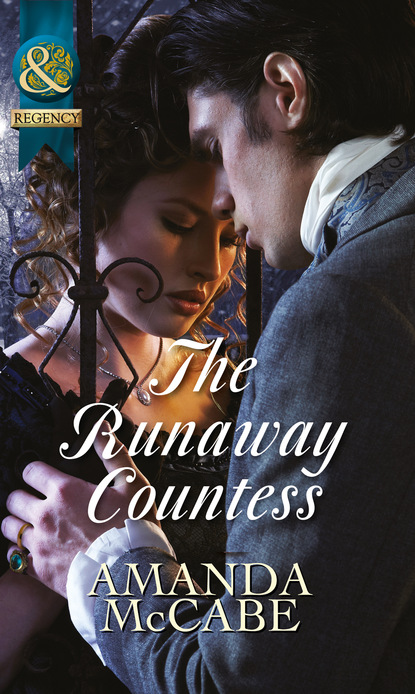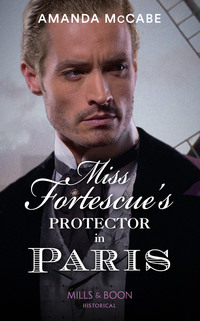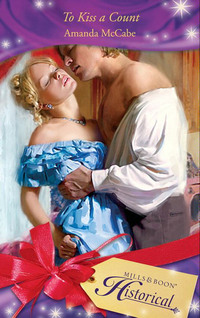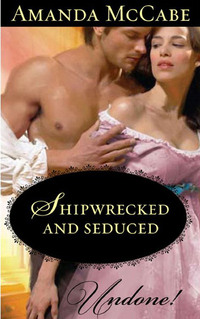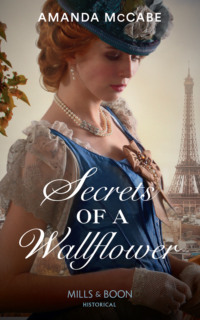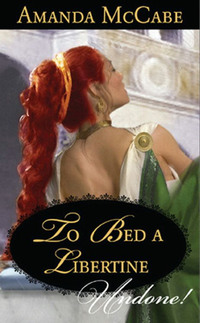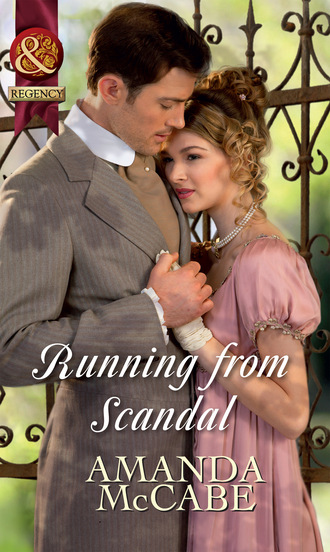
Полная версия
Running from Scandal
* * *
Emma Bancroft was a most unusual young lady.
David tried to catch a glimpse of her over the heads of the other dancers gathered around him, but the bright glow of her golden hair had vanished. He almost laughed at himself for the sharp pang of disappointment at her disappearance. He was too old, too responsible, to think about a flighty, pretty girl like Miss Bancroft. A girl who obviously didn’t much like him.
Yet the disappointment was there, unmistakably. When she was near, she always intrigued him. What was she thinking when she studied the world around her so closely? Her sister said she studied botany, among other interests, and David found himself most curious to know what those interests were. He wanted to know far too much about her and that couldn’t be.
He had no place for someone like Emma Bancroft in his life now and she had no room for him. She seemed to be in search of far more excitement than he could ever give her. After watching his seemingly quiet father’s secret temper tantrums when he was a boy, he had vowed to keep control over his life at all times. It had almost been a disaster for David’s family and their home when he did briefly lose control. Once, he had spent too much time in London, running with a wild crowd, gambling and drinking too much, being attracted to the wrong sort of female, thinking he could forget his life in such pursuits. Until he saw how his actions hurt other people and he knew he had to change.
As David listened to the opening bars of the dance music and waited for his turn to lead his partner down the line, he caught a glimpse of his sister watching him with an avid gleam in her eyes. Ever since their parents died and he became fully responsible for their family estate at Rose Hill and for Louisa herself, she had been determined to find him a wife. ‘A proper wife,’ she often declared, by which she meant one of her own friends. A young lady from a family they knew well, one Louisa liked spending time with and who would make few changes to their household.
Not a girl like Miss Bancroft, who Louisa had expressed disapproval of more than once. ‘I cannot fathom her,’ Louisa had mused after encountering Miss Bancroft on the road. ‘She is always running about the countryside, her hems all muddy, with that horrid dog. No propriety at all. And her sister! Where is Lady Ramsay’s husband, I should like to know? How can the earl just let the two of them ramble about at Barton Park like that? The house is hardly fit to be lived in. Though we must be nice to them, I suppose. They are our neighbours.’
David suddenly glimpsed Lady Ramsay as she moved around the edge of the dance floor, seeming to look for someone. Her sister, perhaps? Miss Bancroft was nowhere to be seen. David had to agree that the Bancroft sisters’ situation was an odd one and not one his own highly respectable parents would have understood. The two women lived alone in that ramshackle old house, seldom going out into neighbourhood society, and Lord Ramsay was never seen. Lady Ramsay often seemed sad and distant and Miss Bancroft very protective of her, which was most admirable.
David thought they also seemed brave and obviously devoted to each other. Another thing about Miss Bancroft that was unusual—and intriguing.
Suddenly he felt a nudging touch to his hand and glanced down in surprise to find he still stood on the crowded dance floor. And what was more, it was his turn in the figures as the music ran on around him.
Miss Cole smiled up at him, a quick, dazzling smile of flirtatious encouragement, and he led her down the line of dancers in the quick, leaping steps of the dance. She spun under his arm, light and quick, the jewels in her twists of red-gold hair flashing.
‘Very well done, Sir David,’ she whispered.
Miss Cole, unlike Miss Bancroft, was exactly the sort of young lady his sister wanted to see him marry. The daughter of a local, eminently respectable squire, and friends with Louisa for a long time: pretty and accomplished, sparkling in local society, well dowered. The kind of wife who would surely run her house well and fit seamlessly into his carefully built life. And she seemed to like him.
Miss Bancroft was assuredly not for him. She was too young, too eccentric, for them to ever suit. His whole life had been so carefully planned by his family and by himself. He almost threw it all away once. He couldn’t let that happen again now. Not for some strange fascination.
Miss Cole, or a lady like her, would make him a fine wife. Why could he not stop searching the room for a glimpse of Emma Bancroft?
* * *
From the diary of Arabella Bancroft—1663
I have at last arrived at Barton Park. It was not a long journey, but it feels as if I have ventured to a different world. Aunt Mary’s house in London, the endless hours of sewing while she bemoaned all that was lost to her in the wars between the king and Parliament, the filth in the streets—here where everything is green and fresh and new, all that is almost forgotten.
I know I must be grateful to be brought here to my cousin’s beautiful new manor, this gift to him from the new king. I am a poor orphan of seventeen and must live as I can. Yet I cannot understand why I am here. My cousin’s wife has enough maids. I have nothing yet to do but settle into my new chamber—my very own, not shared! Heaven!—and explore the lovely gardens.
But my chambermaid has told me the most intriguing tale—it seems that during the wars one of King Charles’s men hid a great treasure near here. And it has never been found.
I do love a puzzle.
Chapter One
Six years later
Barton Park. Emma could hardly believe she was there again, after so much time. It felt as if she had been swept up in a whirlwind from one world and dropped into another, it was all so strange.
She stood at the rise of a hill, staring down along the grey ribbon of road to the gates of Barton. They stood slightly open, as if waiting to welcome her home, but Barton no longer felt like home. There was no longer anywhere that felt like home now. She was just a little piece of gossamer flotsam, blown back to these gates.
She gathered her black skirts in one hand to keep them from tossing around her in the wind. The carriage waited for her patiently on the road below, halted on its uneventful journey from London to here when she insisted on getting out to look around. Her brother-in-law’s driver and footmen waited quietly, no doubt fully informed by downstairs gossip about the unpredictable ways of Lady Ramsay’s prodigal sister.
Emma knew she should hurry inside. The wind was brisk and the pale-grey clouds overhead threatened rain. Her old dog, Murray, whined a bit and nudged with his cold nose at her gloved hand, but he wouldn’t leave her side. Murray, at least, had never changed.
Yet she couldn’t quite bring herself to go to the house just yet.
She’d left Barton five years ago as Miss Emma Bancroft, full of hopes and fears for her first London Season. She came back now as Mrs Carrington, young widow, penniless, shadowed by gossip and scandal. The fears still lingered, but the hope was quite, quite gone.
She held up her hand to shield her eyes from the glare of the light and studied the red-brick chimneys of Barton rising through the swaying banks of trees. Spring was on the way, she could see it in the fresh, pale green buds on the branches, could smell the damp-flower scent of it on the wind. Once she had loved spring at Barton. A time of new beginnings, new dreams.
Emma wanted to feel that way again, she wanted it so desperately. Once she had been so eager to run out and discover everything life had to offer. But that led only to disaster, over and over. It ended in a life with Henry Carrington.
Emma closed her eyes against a sudden spasm of pain that rippled through her. Henry. So handsome, so charming, so dazzling to her entire senses. He was like a whirlwind, too, and he swept her along with him, giddy and full of raw, romantic joy.
Until that giddiness turned to madness and led them on a downward spiral through Continental spa towns where there was plenty of gambling to be had. Henry was always so sure their fortunes would turn around soon, on the turn of the next card, at the bottom of the next bottle. It only led them to shabbier and shabbier lodgings on shadier streets with uncertain friends.
It led Henry to death at the wrong end of a duelling pistol, wielded by the husband of a woman he claimed to have fallen in love with at Vichy. And it took Emma back here to Barton, when she found the scandal had blocked her escape anywhere else.
‘Let me help you,’ Henry’s cousin Philip had said, grasping her hand tightly in his when he gave her the news of the fatal duel. ‘Henry would have wanted it that way. And you know how very much I have always admired you. Dearest Emma.’
Philip had indeed always been Henry’s friend, a friend who caroused with him, but also loaned him money, made sure he made it home, visited Emma when she was alone and frightened in strange rooms with no knowledge of when Henry might return. She appreciated Philip’s kindness, even in moments when his attentions seemed to ease over a line of propriety.
In that moment, with Henry so newly dead and the shock so cold around her, she was almost tempted to let Philip ‘take care of her’. To give in to the loneliness and fear. But then she looked into his eyes and saw something there that frightened her even more. A gleam of possessive passion she saw once in Mr Milne, the dancing master, and in that villain who had once kidnapped her in the rainstorm at Barton.
The same look they had just before they violently attacked her.
So she sent Philip away, swallowed her pride, and wrote to her sister. Jane had warned her against Henry when Emma wanted to marry him, had even threatened to make Emma wait a year before she would even agree to an engagement, which led to Emma eloping and causing the first of many great scandals. And then Henry had found out that Jane and her husband had tied Emma’s dowry and small inheritance from her mother up so tightly he could never touch them and some of his passion died.
While Emma wandered the Continent in Henry’s wake, Jane wrote sometimes, and they even saw each other once when the Ramsays were touring Italy. They were not completely estranged, but Jane would never give in when it came to the money. ‘It is yours, Emma, when you need it,’ she insisted and so Henry cut Emma off from the Ramsays.
But when Emma wrote after Henry’s death, Jane immediately sent money and servants to fetch her home, since Jane herself was too pregnant to travel. Jane would never abandon her, Emma knew that. Only her own embarrassment and shame had kept her away from Barton until now, had kept her from leaving Henry and seeking the shelter of her childhood home. She wondered what she would find beyond those gates.
Murray whined louder and leaned against her. Emma laughed and patted his head with her black-gloved hand.
‘I’m sorry, old friend,’ she said. ‘I know it’s cold out here. We’ll go inside now.’
He trotted behind her down the hill and climbed back into the carriage at her side. For some months, Murray had seemed to be getting older, with rheumatic joints and a greying muzzle, but he wagged his plumy tail eagerly as they bounced past the gates. He seemed to realise they were almost home.
The drive to Barton was a long, picturesquely winding one, meandering gently between groves of trees, old statues and teasing glimpses of chimneys and walls. In the distance, Emma could see the old maze, the white, peaked rooftops of the rebuilt summerhouse at its centre peeking up above the hedges. In the other direction were the fields and meadows of Rose Hill, the Marton estate, and its picturesque ruins of the old medieval castle, which she had long wanted to explore.
Then the carriage came to a V in the drive. One way led to a cluster of old cottages, once used for retired estate retainers, and old orchards. The other way led to the house itself.
Emma leaned out of the window next to Murray and watched as Barton itself came into view. Built soon after the return of Charles II for one of his Royalist supporters, Emma’s ancestor, its red-brick walls, trimmed with white stonework and softened by skeins of climbing ivy, were warm and welcoming.
When Emma and Jane had lived there before Jane reconciled with Hayden, the walls had been slowly crumbling and the gardens overgrown. Now everything was fresh and pretty, the flowerbeds just turning green, the low hedge borders neatly trimmed, new statues brought from Italy gleaming white. Emma glimpsed gardeners on the pathways at the side of the house, busy with their trowels and shears.
So much had changed. So much was the same.
As the carriage rolled to a halt, the front door to the house flew open just as a footman hurried to help Emma alight. Jane came hurrying out, as quickly as she could with her pregnant belly impeding her usual graceful speed. Her hazel eyes sparkled and she was laughing as she clapped her hands.
‘Emma, my darling! Here you are at last,’ Jane cried. As soon as Emma’s half-boots touched the gravelled drive, Jane swept her into her arms and kissed her cheek. ‘Welcome home.’
Home. As Emma hugged her sister back, felt her warmth and breathed in the soft, flowery scent of her lilac perfume, she could almost feel at home again. In sanctuary. Safe.
But wandering anchorless around Europe, seeing the dark depths all sorts of people were capable of, had taught her there was really no place safe. And even as she wanted to hold tight to Jane now, the guilty memory of how she had hurt her sister by eloping, of Jane’s disappointment, still stung.
Emma stepped back and forced a bright smile as Jane examined her closely. Emma had learned the art of hiding her true feelings with Henry, but still it was difficult to do. ‘Barton is looking splendid. And so are you, Jane. Positively blooming.’
Jane laughed ruefully as she gently smoothed her hand over her belly. ‘I’m as big as a barouche now, I fear, and twice as lumbering. But I’ve felt much better this time than I did with the twins, hardly any morning sickness at all. I’ll feel all the better now with you here, Emma. I’ve missed you so much.’
‘And I’ve missed you.’ More even than Emma had realised all those lonely months. ‘And Barton.’
Jane took her arm and led her into the hall. Emma saw the changes to Barton were not just on the outside. The old, scarred parquet floor was replaced with fashionable black-and-white marble tiles. A newly regilded balustrade curved up along the staircase, which was laid with a thick blue-and-gold carpet runner. A marble-topped table held a large arrangement of hothouse roses and blue satin chairs lined up along the silk-striped walls.
But Emma didn’t have much time to examine the refurbishments.
‘Is that our Aunt Emma?’ a tiny, fluting voice called out, echoing down the stairs. Emma glanced up to find two little faces, with two matching sets of hazel eyes and mops of blond curls, peering down at her from the landing.
‘I am your Aunt Emma,’ she said, her heart feeling as if it would burst at this sight of the twins, who she hadn’t seen in so very long. ‘You must be William and Eleanor. You are much bigger than when I last saw you. Back then you were about as large as a loaf of bread.’
The two of them giggled and quickly came dashing and tumbling down the stairs to land at her feet. They peered up at her with curiosity shining from their eyes, eyes that were so much like their mother’s.
‘You’re much younger than we imagined,’ William said.
‘And thinner,’ Eleanor added. ‘You should eat some cream cakes.’
‘Children!’ Jane admonished. ‘Manners, please.’
They curtsied and bowed with murmured ‘How do you do’s’ before Jane sent them off to find tea in the drawing room.
‘I am so sorry, Emma,’ Jane said as they turned to follow the children. ‘Hayden and I, and their nannies, work so hard to teach them how to be a viscount and a lady, but they are at such an outspoken age.’
Emma laughed. ‘Rather like we were back then? Though I fear I have not quite outgrown it, whereas you are the perfect countess.’ Suddenly she glimpsed a pile of travel trunks near the drawing-room doors. ‘Are you going somewhere?’
‘We were planning to go to London for my confinement,’ Jane said. ‘Hayden thinks I should be near the doctors there. But now that you are here...’
‘You must still go,’ Emma said firmly, a bit relieved she might have a few days to find her feet without Jane worrying over her as well as the new baby. ‘Your health comes first. You can’t worry about me now.’
‘But you can’t rattle around Barton all alone! You could come with us to London.’
London was the last place Emma wanted to be. All those watching eyes and gossiping tongues, all too ready to stir up the old scandal-broth of her elopement and disastrous marriage. ‘Actually, I was thinking I could use one of the old cottages. They are so small and cosy, a perfect place for me to decide what I should do next.’
‘Live in one of the cottages,’ Jane exclaimed. ‘Oh, Emma dear, no. This is your house.’
‘But you said yourself, it is too big for one person. And I can’t go to London now. Not yet. You wrote that Hayden was seeing about releasing my small inheritance from Mama to me soon—I can make do on that in the cottage.’
‘But...’ Jane looked all set for an argument, but she was, luckily, distracted by the twins calling for her. ‘We will talk about this later, Emma,’ she said as they hurried into the drawing room.
Emma was sure there would be a long talk later, yet she was set. A small cottage, where she could be alone and think, would be perfect for her now. She would be out of Jane’s way, and she could decipher how not to make such foolish mistakes again.
The twins were already settling in next to a lavishly appointed tea table near the windows that looked out on the gardens. Light gleamed on their grandmother’s silver tea service and platters of sandwiches and cakes, all cut into pretty shapes and arranged in artistic pyramids.
The children eyed the display avidly, but sat quietly with hands innocently folded in their laps.
‘All this for me?’ Emma said with a laugh.
‘Hannah missed you, too,’ Jane said, mentioning the woman who had been their maid for many years. In poorer times she was their only maid, but now she was housekeeper of Barton.
‘Here, Aunt Emma, you must have this cake,’ Eleanor said, passing her a pink-frosted confection.
‘Thank you very much, Eleanor dear,’ Emma said, sure her niece was most serious now about fattening her up. As they sipped at their tea, she studied the gardens outside. The terraces of flowerbeds sloped gently down to the maze and she was sure when summer came it would be a glorious riot of colour. ‘What has been happening in the village of late? Anything interesting?’
‘Oh, yes, a great deal,’ Jane said enthusiastically. ‘There is a new vicar, an excellent gentleman by the name of Mr Crawford. He is Lady Wheelington’s son from her first marriage. I am sure you must remember my friend Lady Wheelington? She is newly home from abroad herself. Mr Crawford is sadly yet unmarried, but I am sure that will soon be remedied. His mother has hinted of a young lady from Brighton. And old Lady Firth finally won the flower show last year! It was long past time. And Sir David Marton has come back to Rose Hill at last.’
‘Sir David Marton?’ Emma said, startled by the name. She feared the words came out much sharper than she intended and quickly turned away to nibble at her cake. ‘I hadn’t realised he ever left. He didn’t seem the adventurous sort.’
‘So you do remember Sir David?’ Jane said.
Of course Emma remembered him. How very handsome he was. The way he seemed to admire Jane’s sweet ways so much. The way he would look at Emma, so carefully, so close and calm, until she feared he could see her every secret.
How would he look at her now, after everything that had happened? Would he even speak to her at all?
Somehow the thought of Sir David’s disapproval made her heart sink just a bit.
‘I do remember him,’ she said.
‘Yes. He was quite kind to us when things looked rather bleak, wasn’t he? And he was such a help that night of the fire.’
He had been kind to Jane, always. ‘Yet you say he left the village?’
‘Yes. He married Miss Maude Cole. Do you remember her as well?’
Miss Cole, who Sir David had danced with at that long-ago assembly. Pretty, vivacious Miss Cole. The perfect wife for a man like him. ‘Of course. She was quite lovely and good friends with his sister, as I recall, so such a match makes sense.’
Jane arched her brow. ‘So everyone thought.’
‘Was it not a good match after all?’
‘No one knows for sure. Lady Marton preferred town life, so soon after the wedding they went off to London and rarely came back here. Hayden and I have mostly been at Ramsay House or here at Barton, but we heard she was quite the toast.’
‘Was?’
‘Sadly, Lady Marton died last year, and Sir David has come back to Rose Hill with his little daughter. We haven’t seen them very much, but the poor child does seem very quiet.’
‘She must miss her mother,’ Emma said quietly. Surely Sir David also missed his pretty wife. She was sure he would never have allowed his marital life to grow messy and discordant as hers had. The poor little girl, how she must feel the terrible loss.
‘Miss Louisa Marton, who is now Mrs Smythe, is said to be most earnestly searching for a new sister-in-law,’ Jane said.
‘She must surely be disappointed at the lack of scope for matchmaking around here,’ Emma said, making her tone light. She didn’t want to talk or think about Sir David any longer. It only reminded her of how very different things were now from when she last met with him. ‘Tell me, William and Eleanor, do you like to play blindman’s buff? It was your mama’s favourite game when we were children, though you may not believe me now. Perhaps we could play a round later...’
* * *
From the diary of Arabella Bancroft
I think I have discovered one of the reasons I was summoned to Barton. In return for the gift of the estate, the king expects my cousin to host many parties for his court. My cousin’s wife’s health does not allow her to play hostess to such a raucous crowd, thus my place here. I know little of planning grand balls, but I confess I do love the new clothes—so much silk and lace, so many feathered hats and furred capes!
And the people who come here are most intriguing. I have seldom had the chance for such conversation before, and once I am an improved card player I shall surely fit in better.
I have been asking about the lost treasure, but beyond ever more fantastical tales I can find out nothing...
Chapter Two
The silence in the carriage was absolutely deafening.
David looked down at his daughter, Beatrice, who perched beside him on the seat of the curricle. Most of her face was hidden by the brim of her straw bonnet, but he could see the tip of her upturned nose and the corner of her mouth, unsmiling as she watched the lane go by. Her red-gold curls, tied neatly at the nape of her neck with a pink bow, laid in a glossy stream down the back of her blue-velvet spencer.
Bea always looked like the perfect little lady, a pretty porcelain doll in her fashionable clothes, with a real doll usually tucked under her arm as her constant companion. All the ladies they ever met exclaimed and cooed over her. ‘A perfect angel, David,’ his sister always crowed. ‘Why, she never cries or fusses at all! And after all she’s been through...’
Louisa was right. Bea was an angel, always playing quietly with her dolls or attending to lessons with her nanny. But was she too quiet? Too self-contained for a five-year-old?
Even now, on a lovely, warm, early spring day, when children were dashing along the lane with their hoops and skipping ropes, shouting and laughing, she just watched them with no expression on her little face.


